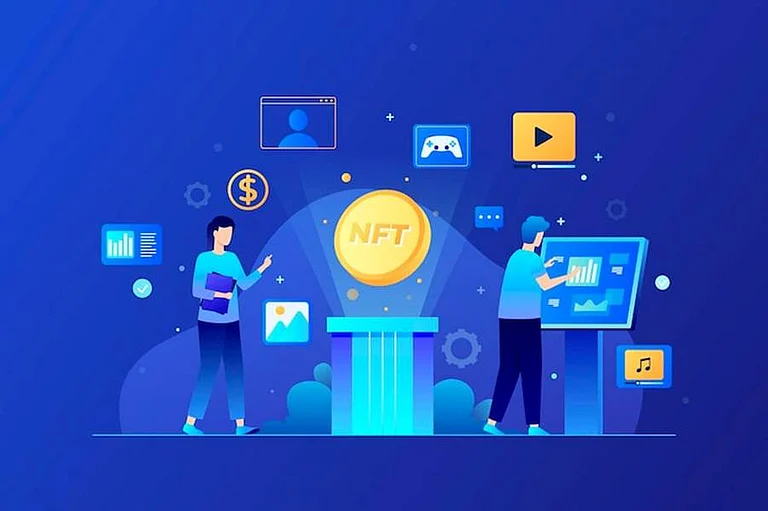Cryptocurrency exchanges transformed from specialist trading platforms to international financial centers connecting millions of users to the digital economy of assets. Decade by decade, they transformed from basic Bitcoin trading portals to complex ecosystems with thousands of cryptocurrencies, tokenized assets, derivatives, and even NFTs. Far from done, the transformation continues. With technology, regulation, and user needs continuing to evolve, the future of cryptocurrency exchanges will be far removed from today.
Here, in this article, we look at the possible future of cryptocurrency exchanges — the technologies that will shape them, the challenges they will face, and their role in the overall financial system.
The Technological Revolution: Speed, Security, and Scalability
The very basic function of any exchange is to provide a safe and efficient marketplace on which to trade. Speed, scalability, and security will be absolute necessities over the next few years.
Blockchain technology is already in the process of supporting faster finality of transactions, with Layer 2 solutions such as the Lightning Network and zk-rollups allowing near-instant trades and reduced fees. Future exchanges can easily natively integrate these solutions, thereby removing the long confirmation times.
Security will be even more emphasized. History indicates that history's most-highly-profiled exchange hacks have cost billions of users' money, and it has created calls for better custodial security. Broad adoption of multi-party computation (MPC), decentralized custody platforms, and live proof-of-reserves audits are to be anticipated. With the addition of open security controls, future exchanges can regain user trust while possessing the ability to meet increasing compliance requirements.
Decentralized Exchanges (DEXs) on the Rise
The most dramatic change in store perhaps is increasing use of decentralized exchanges. In contrast to centralized exchanges, DEXs do not involve the utilization of deposits within an intermediary account. Rather, they enable peer-to-peer transactions directly from one's own wallet.
While the increasing problem of privacy, security, and government overreach continues to damage the space, DEXs can be the solution for most of the crypto community. Existing DEXs, though, have problems such as slower pace, greater gas fees on congested networks, and a less convenient experience.
Future versions will solve these issues with cross-chain interop protocols, AI-trading interfaces, and gasless transaction models. These technologies can popularize DEXs into a mainstream movement, relegating the centralized exchange era to the annals of history.
Linkage with Traditional Finance
The future of crypto exchanges will not be separate from the wider financial system. In fact, we already have the initial stages of integration underway, with mainstream stock exchanges piloting tokenized securities and large banks offering crypto custody.
Over the next decade, we can expect crypto exchanges to function as hybrid financial platforms — offering both digital assets and traditional instruments under one roof. This could mean that investors will be able to trade Bitcoin alongside stocks, bonds, commodities, and real estate tokens from a single account.
That would also require enhanced identity verification, anti-money laundering (AML) processes, and cross-jurisdictional compliance processes. That would reduce anonymity but enhance exchanges to institutional investors, which could provide additional liquidity and stability in markets.
Regulatory Transformation: Achieving Global Balance
Regulation is most likely to be the most unpredictable force to shape upcoming cryptocurrency exchanges. Digital currencies have been embraced in some countries by establishing transparent trading and taxing procedures, and some have enacted outright prohibitions.
One possible future would see world regulatory standards established by governments, financial regulators, and industry players in the blockchain arena collaborating. This would facilitate exchanges to cross borders more comfortably without compromising standard consumer protections.
We can anticipate the development of foreign exchanges that will be licensed and operate within multinational regulatory frameworks, providing increased investor confidence. But these rules must balance innovation with safety — overly restrictive rules may push trading onto unregulated high-risk exchanges.
AI, Automation, and Personalization
Artificial intelligence has the potential to transform the way exchanges of cryptocurrency function. From detecting fraud in real-time to market analysis through artificial intelligence, automation has the potential to make trading websites more secure and efficient.
AI can similarly be used to highly personalize the user experience. Picture logging into your exchange account and being greeted with a dashboard that is customized to your trading habits, risk tolerance, and investment objectives — all backed by AI-generated analysis and automatically executing trade plays.
Such personalization can level the playing field for new traders compared to sophisticated market environments, bringing digital asset investment to the masses.
Cross-Chain and Interoperability Solutions
One of the weaknesses of exchanges currently is that assets across different blockchains are usually not capable of transferring information back and forth effectively. All this mounts up to a fragmented market and limits potential for trading.
Cross-blockchain compatibility will be built into the very fabric of exchanges going forward. Traders will be able to switch between blockchains without relying on third-party bridges which can be compromised.
Such compatibility will also provide the opportunity for more sophisticated financial products — maybe even yield-producing strategies that involve the pooling of assets on Ethereum, Bitcoin, and other networks into one portfolio.
Tokenization's Role
Tokenization — the conversion of traditional and physical assets to blockchain-based tokens — has the ability to shift exchange. Real estate, art, intellectual property, and even stocks can be exchanged as digital tokens.
This would not only raise the amount of assets one can trade but even more liquidate the erstwhile illiquid markets. Future exchanges will turn all except the most exotic asset classes into global marketplaces for anyone who has access to the internet.
The Road Ahead: Opportunities and Risks
The future of cryptocurrency trading has a lot of promise, but also a lot of risks. As exchanges grow more advanced and interconnected, they will be even more vulnerable to hacking. And the debate between regulation and anonymity will remain a contentious one.
Those interactions that prosper in the next decade will be those that achieve a balance between security, innovation, and compliance -- being agile enough to maintain the pace with technology and marketplace shifts.
Final Thoughts
Cryptocurrency exchanges are leading the charge in the transformation of digital assets, but they are only beginning. Over the next few years, they will evolve from simple trading venues to multi-asset, AI-powered, globally regulated financial ecosystems.
To policymakers, investors, and traders as well, these suggested adjustments are relevant to be aware of. Whether a centralized colossus future, a decentralized disruption future, or some other scenario in between, be assured — cryptocurrency exchanges will continue to revolutionize the world of finance in ways we can hardly yet imagine.

























